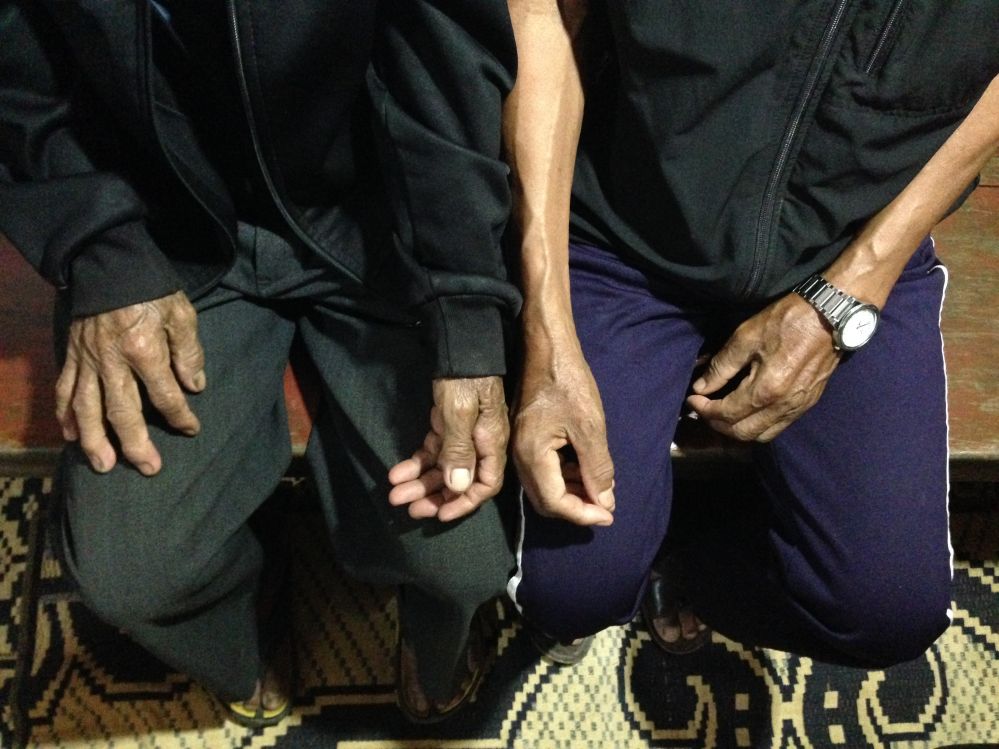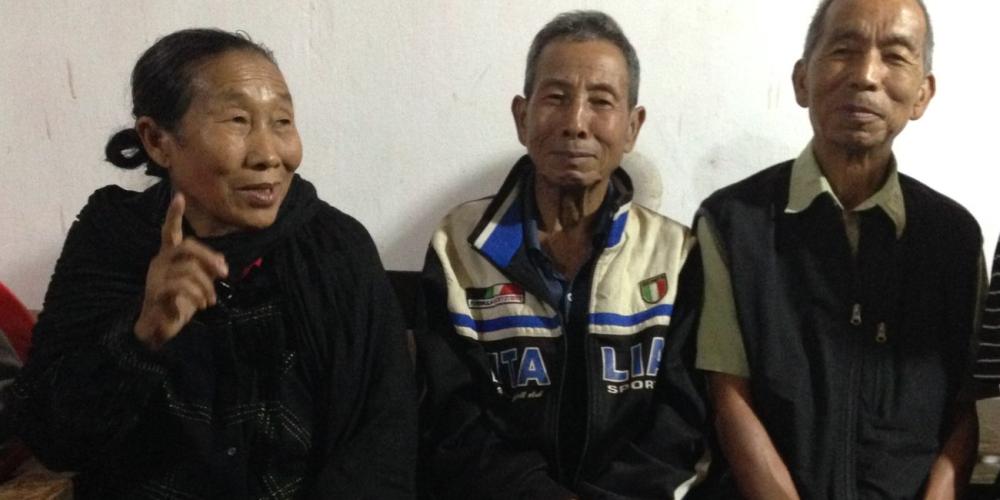Indian Village Where 30% of Population Is Adventist
Faithfulness amid persecution is credited for the church’s remarkable growth.
The steadfast faithfulness of six Seventh-day Adventist families amid death threats, police arrest, and other forms of religious harassment is credited with turning a small village into a vibrant stronghold of Adventism in an isolated corner of India.
Today 30 percent of the 1,500 residents of the village, Samziuram, belong to the Adventist Church, a result that local church pioneers link to a series of remarkable events in the 1970s.
“When I think of the humble beginnings of the small, persecuted church, I cannot fathom how the Lord has led us from six Adventist families to 84 families today,” said Amunang Gonmei, 77, a local church deacon and retired farmer, who was arrested for his faith in the 1970.
“This is beyond my wildest dreams,” he said in an interview in Samziuram. “I just want to thank the Lord for His wonderful and amazing leading of the church.”
The remarkable story started when the six Sabbath-keeping families fled to the predominantly Christian village located in northeastern India, near the border with Myanmar, amid an insurgency crisis in their native Manipur region in 1966. Life was normal for the first four years — until the adults in the families decided to officially join the Adventist Church through baptism, members of those first families said in interviews. Almost immediately, other villagers began to demand that the Adventists recant their faith or leave. When the six families refused, villagers broke into their church building — a hut with a thatched roof — and built a stove of three stones in the center.
“They said this should be a house for living in, not a church,” said Enoch Gonmei, a local church deacon.
Several villagers made death threats against the Adventists, he said. Then the villagers convinced the top local government official — known as the sub-divisional officer — to issue an unconstitutional edict declaring that the Adventists had to give up their faith or leave the village.
The following Sabbath, the Adventists returned from church to find police officers on their property. The officers told the three adult Adventist men in the group that they were under arrest and would be taken to police headquarters in the Nagaland region’s largest city, Dimapur, located a 2 ½ hour-drive away on rough dirt roads.
The women were afraid, and the children began to cry. One of the adult men, Panmeichung Panmei, remembers boldly telling the police: “We have not committed any crime deserving arrest. If you want to kill us on religious grounds, we are ready to give our lives.”
Panmei, now 75, said a police officer replied: “We don’t want to kill you. But since the villagers do not want you here, we are taking you away.”
The police officers handcuffed Panmei to his friend Amunang Gonmei and placed them and the third man, an elderly grandfather, in the open back of a police truck.

Panmei’s wife, Makukhonna, now 75, said she felt sick to her stomach as she saw her husband led away. But she remembered Jesus’ promise of Matthew 5:10, “Blessed are those who are persecuted for righteousness’ sake, for theirs is the kingdom of heaven” (NKJV).
“I remembered this text and found a sense of peace in God,” she said.
Partway on the bumpy ride to the police station, Panmei watched in surprise as the handcuffs slid off his wrist.
“There was no explanation for why they fell off because they were locked,” he said.
He showed his freed hand to the police officers. Asked by the stunned officers how he had been released, he replied, “We did nothing.”
The officers relocked the handcuffs shortly before the truck reached the police station.
Two days later, on Monday, the three men were released on condition that they move to another village. Panmei said the Adventists protested, saying, “You have not given us a reason for why you arrested us without an investigation and without any charges.”
The police officers could not reply and finally freed the men. Back home, the men filed an appeal with the local authorities for false arrest and other wrongful actions. The authorities ruled in their favor three months later.
Panmei said he does not know why the handcuffs fell off his wrist, much like the chains that fell from apostle Peter’s hands when an angel delivered him from prison in Acts 12:5-10. But he said the incident reminded him in his hour of trouble that God was near.
“It was a miracle, a kind of a sign that showed us that God was with us,” he said.
Read more about Samziuram village: "Why an Indian Village Stopped Harassing Adventists"
A portion of the Thirteen Sabbath Offering for third quarter 2017 will go toward constructing a girls’ dormitory at Nagaland Adventist School in Dimapur, the city where the men were jailed for two days. The 12-grade day school, which opened in 2007, plans to expand into a boarding school to attract more students. Although it also hopes to construct a boys’ dormitory one day, it has decided to start with a girls’ dormitory because of high demand from female students.
A total of $1.03 million from the Thirteenth Sabbath Offering will be earmarked for five projects in India in third quarter 2017. The other four projects include a new girls’ dormitory at James Memorial Higher Secondary School in Prakasapuram in southern India; 14 new classrooms for an Adventist school in Vellarada in southern India; 14 new classrooms for Alate Adventist school in Hathkanangle in western India; and the division’s first major conference center, situated in the central city of Ibrahimpatnam.





